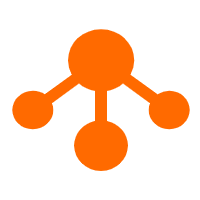By digoal
If a dependency exists when deleting an extension plug-in for PostgreSQL, you must delete the dependency must first. You can also specify the cascade to delete extension plug-in together with objects dependent on the plug-in.
postgres=# drop extension palaemon ;
ERROR: 2BP01: cannot drop extension palaemon because other objects depend on it
DETAIL: index v_hnsw_idx_t depends on operator class palaemon_hnsw_ops for access method palaemon_hnsw
index v_ivfflat_idx_t depends on operator class palaemon_ivfflat_float_ops for access method palaemon_ivfflat
index v_ivfflat_idx depends on operator class palaemon_ivfflat_float_ops for access method palaemon_ivfflat
HINT: Use DROP ... CASCADE to drop the dependent objects too.
LOCATION: reportDependentObjects, dependency.c:997
postgres=# drop extension orafce ;
ERROR: 2BP01: cannot drop extension orafce because other objects depend on it
DETAIL: column id of table t1234 depends on type varchar2
HINT: Use DROP ... CASCADE to drop the dependent objects too.
LOCATION: reportDependentObjects, dependency.c:997 The id field depends on orafce, so "drop extension orafce cascade" deletes the id field.
postgres=# drop extension orafce cascade;
NOTICE: 00000: drop cascades to column id of table t1234
LOCATION: reportDependentObjects, dependency.c:1021
DROP EXTENSION
postgres=# \d t1234
Table "public.t1234"
Column | Type | Collation | Nullable | Default
--------+------+-----------+----------+---------
Publications:
"pub" A plug-in may contain objects such as new type, operator, ops, and function. The question is how to know what these objects are referenced by.
with etypes as
(
select classid::regclass,
objid,
deptype,
e.extname
from pg_depend
join pg_extension e
on refclassid = 'pg_extension'::regclass
and refobjid = e.oid
where classid = 'pg_type'::regclass
)
select etypes.extname,
etypes.objid::regtype as type,
n.nspname as schema,
c.relname as table,
attname as column
from pg_depend
join etypes
on etypes.classid = pg_depend.refclassid
and etypes.objid = pg_depend.refobjid
join pg_class c on c.oid = pg_depend.objid
join pg_namespace n on n.oid = c.relnamespace
join pg_attribute attr
on attr.attrelid = pg_depend.objid
and attr.attnum = pg_depend.objsubid
where pg_depend.classid = 'pg_class'::regclass; The above SQL statements can only query the dependency of type, but not other objects. You can modify the statements to query other dependencies.
extname | type | schema | table | column
---------+----------+--------+-------+--------
orafce | varchar2 | public | t1234 | id
(1 row) PostgreSQL pg_pathman: Partition Tables into Native Partition Tables
ApsaraDB - December 11, 2024
ApsaraDB - January 15, 2026
ApsaraDB - November 18, 2025
digoal - May 28, 2021
Alibaba Clouder - July 26, 2019
digoal - May 16, 2019
 PolarDB for PostgreSQL
PolarDB for PostgreSQL
Alibaba Cloud PolarDB for PostgreSQL is an in-house relational database service 100% compatible with PostgreSQL and highly compatible with the Oracle syntax.
Learn More AnalyticDB for PostgreSQL
AnalyticDB for PostgreSQL
An online MPP warehousing service based on the Greenplum Database open source program
Learn More Tablestore
Tablestore
A fully managed NoSQL cloud database service that enables storage of massive amount of structured and semi-structured data
Learn More ApsaraDB for ClickHouse
ApsaraDB for ClickHouse
ApsaraDB for ClickHouse is a distributed column-oriented database service that provides real-time analysis.
Learn MoreMore Posts by digoal